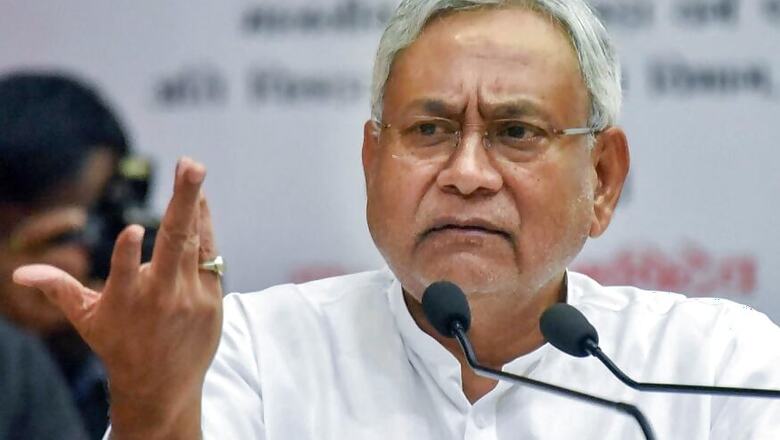
views
Reconciled to the possibility of assembly elections in Bihar being held amid restrictions in place because of the COVID 19 pandemic, Chief Minister Nitish Kumar's Janata Dal (United) has asked its rank and file to ramp up its social media presence with a special focus on first-time voters.
Creating WhatsApp groups and Facebook pages, which could serve as an interface between the party and the masses, figured among the commandments received by JD(U) foot soldiers from Kumar during the six-day "virtual sammelan" that ended on Friday.
Seated at his official residence here and flanked by trusted aides, Kumar picked the brains of the party's grassroots workers spread across all 38 districts of Bihar during the six-day-long exercise.
In his introductory remarks on Friday, Sanjay Kumar Jha, who is a national general secretary of the party besides a member of the state cabinet, said, "more than 70 per cent of men and women, aged between 18 and 24 years, are known to be very active on WhatsApp and Facebook".
"This online presence must be tapped into. These youngsters are most likely not aware of the conditions that prevailed in Bihar when Nitish Kumar took over.
"A few decades ago, when we were students ourselves, the Magadh region always remained in news because of massacres which have become a thing of the past," he said.
Compare that with the situation today when students from Jehanabad and Aurangabad districts are figuring among toppers in examinations conducted by the state secondary education board, Jha said.
"Lives of girls have been transformed because of schemes like free bicycles and uniforms. The youngsters would be able to appreciate it better in the light of how bad things were earlier," he added.
The contrast between "good governance" brought in by Kumar and the "jungle raj" that preceded it has been a recurring theme of the pep talks that the chief minister and his cohorts delivered to the party foot soldiers since Sunday last.
Party posters with evocative captions like "bhay banaam bharosa" (terror versus trust) and Kumar's own repeated assertion - "those who have attained voting age only recently must have been very young in 2005 and they need to be told what we had inherited"- give ample indication that the ruling party intends to harp on the failures of the once-mighty RJD.
Besides, the party will highlight the achievements that mark the period since it has been in power.
The strategy, in which the JD(U) is firmly backed by the BJP for which the tone was set by Union Home Minister Amit Shah at his maiden "virtual rally" last Sunday, which has met with expected indignation from the RJD headed by Lalu Prasad.
Tejashwi Yadav, who is Prasad's younger son and the chief ministerial candidate for the assembly elections, routinely poses the question "did the JD(U) and Nitish Kumar not know about corruption cases against my father and criminal cases against members of my party when he aligned with us".
Notably, Yadav was Kumar's deputy until the latter abruptly walked out of the Grand Alliance that comprised JD (U), RJD and Congress in July 2017 and returned to the NDA which he had quit in 2013.
A seasoned politician, who is aiming for a record fourth consecutive term as chief minister, Kumar is all too aware of a pitfall of coming down very heavily on the opposition party.
"The focus on the wrongdoings of our predecessors in power must not be more than 10 per cent," Kumar has been telling his party workers, a cautionary note seeking to restrain them from getting carried away while speaking about "Pati Patni Ki Sarkaar" yet another catchphrase adopted by the party.
The slogan seeks to underscore the 15 years during which Lalu Prasad and Rabri Devi held the chief minister's post between themselves.




















Comments
0 comment